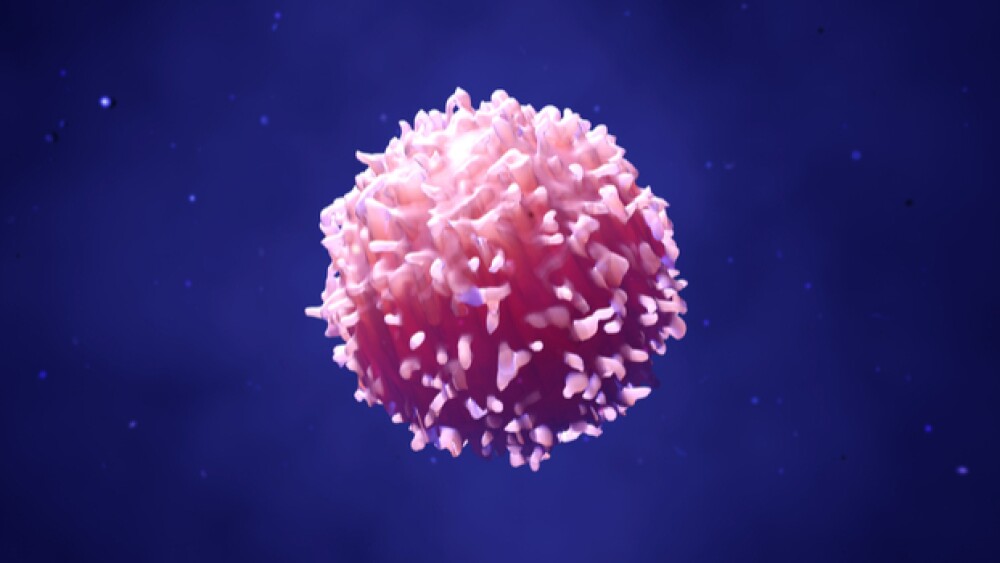The American Association for Cancer Research (AACR) Annual Meeting is ongoing in Atlanta, with plenty of companies presenting interesting and cutting-edge science. Here’s a look at just a representative few.
The American Association for Cancer Research (AACR) Annual Meeting is ongoing in Atlanta, with plenty of companies presenting interesting and cutting-edge science. Here’s a look at just a representative few.
Innate Pharma Presents New Generation of Cancer-Fighting Drugs
Marseille, France-based Innate Pharma presented preclinical data from its combination of anti-CD39 monoclonal antibody, IPH5201 and ATP-inducing oxaliplatin in a preclinical mouse model. Earlier findings showed that IPH5201 enhances the stimulatory effect of ATP on antigen-presenting cells and helps free T-cells from the suppressing effect.
“Innate Pharma has always been driven by scientific leadership and we are very proud to present new preclinical data from our broad and innovative portfolio of next generation cancer immunotherapies,” stated Eric Vivier, chief scientific officer of Innate. “For the first time, we also shared data from our multi-specific NK-cell engager technology that highlight a new generation of molecules for fighting cancers.”
Roche’s Tecentriq Strikes Again
Roche presented initial data from a Phase Ib trial of ipatasertib, Tecentriq (atezolizumab) and chemotherapy (Abraxane) as a first-line treatment for advanced triple-negative breast cancer (TNBC). The combination treatment showed a confirmed objective response rate (ORR) of 73%, regardless of tumor biomarker status.
“These early results support the contribution of ipatasertib to our combination treatment approach in TNBC and reinforce our vision to develop medicines that may benefit patients with this challenging disease,” stated Sandra Horning, Roche’s chief medical officer and head of Global Product Development.
Imvax Announces Positive Results for Glioblastoma Vaccine Trial
Imvax presented positive results from an ongoing Phase Ib clinical trial of IGV-001, a novel autologous tumor cell vaccine in patients with newly diagnosed glioblastoma multiforme (GBM). The vaccine did better than standard of care with prolonged overall survival (OS) and progression-free survival (PFS).
“Our results clearly demonstrate that this new investigational vaccine shows promise when compared to standard of care therapy as currently practiced,” stated David W. Andrews, co-founder, chief medical officer and interim chief executive officer of Imvax, and Anthony Alfred Chiurco, professor of Neurological Surgery, Vice Chair of Clinical Services at the Vickie and Jack Farber Institute for Neuroscience at Jefferson.
Neon Therapeutics Presents Updated Results From Cancer Vaccine
Cambridge, Mass.-based Neon Therapeutics presented updated data describing the immune and pathologic markers linked to durable clinical benefit in its Phase Ib clinical trial of NEO-PV-01 in combination with Opdivo. NEO-PV-01 is a personal neoantigen vaccine custom-designed and manufactured based on the neoantigens identified by the company’s bioinformatics engine, RECON.
“Our new analysis has shown two post-vaccine markers, epitope spread and tumor pathology, that clearly associate with durable clinical benefit,” stated Richard Gaynor, president of Research and Development at Neon.
UCSD Researchers Present Phase II DART Trial Data
Sandip Patel, an associate professor of medicine at the University of California, San Diego (UCSD) School of Medicine, presented results from the Phase II DART clinical trial, a National Cancer Institute-funded trial of Opdivo (nivolumab) and Yervoy (ipilimumab) in high-grade neuroendocrine carcinoma.
Patel stated, “We’re studying over 37 rare tumor types [using the] combination of ipilimumab plus nivolumab. The neuroendocrine cohort, the nonpancreatic cohort, had promising signs of benefit—[particularly] in patients with high-grade neuroendocrine carcinoma—independent to primary site.”
Celularity Presented Results From Two Phase I Trials in AML and Multiple Myeloma
Warren, NJ-based Celularity presented data from two Phase I trials of PNK-007, an off-the-shelf natural killer (NK) cell therapy in patients with acute myeloid leukemia (AML) and in multiple myeloma (MM). The company also presented preclinical data from its genetically-modified allogeneic NK cells (GM-NK) derived from human placental CD34+ progenitors for a broad range of blood cancers and solid tumors.
“The positive results from these first-in-human studies of PNK-007 confirm our unique approach of deriving cell therapy from placental cells, and suggest this investigational immunotherapy has the potential to become an important new immuno-oncology option for patients with serious blood cancers, including those who were heavily pretreated and failed previous lines of therapy, or who have undergone autologous stem cell transplant,” stated Robert J. Hariri, Celularity’s founder, chairman and chief executive officer.





